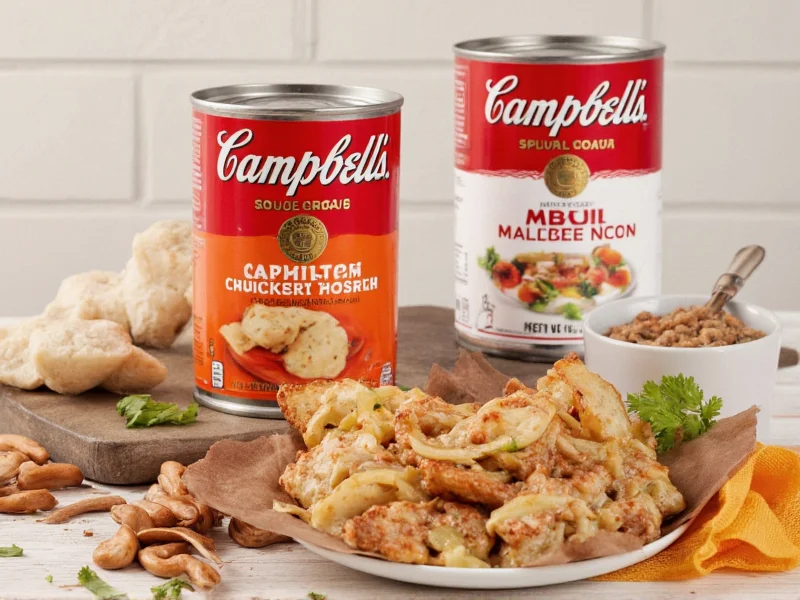Historical Development of Campbell Soup Company
Established by fruit merchant Joseph Campbell and icebox manufacturer Abram Anderson in 1869, Campbell Soup Company began as a producer of canned tomatoes, jellies, and condiments in Camden, New Jersey. The company's breakthrough came in 1897 when chemist John T. Dorrance invented condensed soup, reducing shipping costs and making soup affordable for average households. This innovation transformed Campbell into a household name across America.
Throughout the 20th century, Campbell Soup Company expanded its product portfolio significantly. The company introduced its first "Soup for Souper" advertising campaign in 1910, featuring the now-iconic Campbell Kids illustrations. During World War II, Campbell produced over 170 million cans of soup for military personnel, cementing its position as a national staple. The company went public in 1922 and has maintained continuous dividend payments since 1919, making it a Dividend Aristocrat.
Corporate Structure and Product Portfolio
Today, Campbell Soup Company operates through three primary business segments that serve consumers worldwide. The company's extensive brand portfolio includes both legacy products and newer acquisitions that have diversified its market presence beyond traditional soup offerings.
| Business Segment | Key Brands | Market Position |
|---|---|---|
| Meals & Beverages | Condensed soups, Swanson broths, V8 juices | Market leader in shelf-stable soups |
| Snacks | Goldfish crackers, Pepperidge Farm, Snyder's-Lance | Second largest salty snack company in US |
| Global Specialty | Pacific Foods, Bolthouse Farms, Garden Fresh Gourmet | Leading premium beverage and specialty food provider |
Strategic Evolution and Market Position
While Campbell Soup Company remains synonymous with condensed soup products, the company has strategically diversified its business model over recent decades. The acquisition of Pepperidge Farm in 1961 marked Campbell's first major expansion beyond soup products. More recently, the $4.89 billion acquisition of Snyder's-Lance in 2018 transformed Campbell into the second-largest salty snack company in the United States.
Financially, Campbell Soup Company reported net sales of approximately $8.1 billion for fiscal year 2023. The company maintains production facilities across North America and employs more than 17,000 people worldwide. Despite challenges in the traditional soup market, Campbell has maintained steady performance through product innovation and strategic portfolio adjustments that address evolving consumer preferences for convenience, nutrition, and premium ingredients.
Corporate Responsibility and Innovation
Recognizing changing consumer demands, Campbell Soup Company has implemented significant product reformulation initiatives. The company has reduced sodium content across its condensed soup line by 35% since 2009 while maintaining flavor profiles. Campbell's "Wellness by Design" initiative focuses on creating products with better-for-you ingredients while preserving the convenience consumers expect.
The company's sustainability efforts include ambitious goals to reduce greenhouse gas emissions by 50% by 2030 and achieve net-zero emissions by 2050. Campbell has also committed to using 100% recyclable, reusable, or compostable packaging by 2030, reflecting growing consumer interest in environmentally responsible food manufacturing practices.
Recent Corporate Developments
In 2023, Campbell Soup Company announced a strategic review of its international business, resulting in the sale of its Australian and Latin American operations to focus on core North American markets. The company has also increased investment in e-commerce capabilities, with digital sales growing to represent approximately 12% of total revenue.
Under current CEO Ming Kao, Campbell has shifted toward premiumization and portfolio simplification, discontinuing underperforming product lines while expanding in high-growth categories like plant-based beverages and premium snacks. This strategic realignment aims to position Campbell Soup Company for sustainable growth in an increasingly competitive food landscape.
When was Campbell Soup Company founded?
Campbell Soup Company was founded in 1869 by Joseph Campbell and Abram Anderson in Camden, New Jersey. The company initially produced canned tomatoes, jellies, and condiments before introducing its revolutionary condensed soup formula in 1897.
What are Campbell Soup Company's most popular products?
Campbell's condensed tomato soup remains the company's signature product, but the portfolio has expanded significantly. Popular offerings include Goldfish crackers, Pepperidge Farm cookies, Swanson broths, V8 vegetable juices, and Bolthouse Farms smoothies. The company's condensed soup line includes more than 30 varieties across multiple dietary preferences.
Where is Campbell Soup Company headquartered?
Campbell Soup Company maintains its global headquarters in Camden, New Jersey, where the company was originally founded. The campus includes administrative offices, research and development facilities, and the Campbell Soup Company Archives, which preserves the company's extensive historical records.
Is Campbell Soup Company publicly traded?
Yes, Campbell Soup Company (NYSE: CPB) has been publicly traded since 1922. The company is included in the S&P 500 index and has maintained uninterrupted dividend payments since 1919, qualifying it as a Dividend Aristocrat with more than 50 consecutive years of dividend increases.
How has Campbell Soup Company adapted to changing consumer preferences?
Campbell has responded to evolving consumer demands through product reformulation, portfolio diversification, and strategic acquisitions. The company has reduced sodium in its condensed soups by 35% since 2009, expanded into premium and organic product lines through acquisitions like Pacific Foods, and increased investment in plant-based offerings. Recent initiatives focus on clean label ingredients, sustainable packaging, and convenience-oriented product formats.











 浙公网安备
33010002000092号
浙公网安备
33010002000092号 浙B2-20120091-4
浙B2-20120091-4